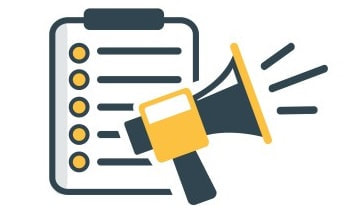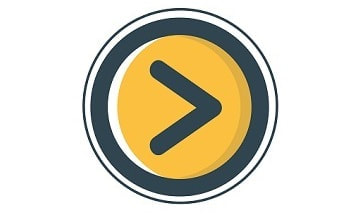The Ultimate Checklist for Anyone Finishing High School at the end of 2024
Finishing Year 13 this year? Our checklist has everything you need to get ahead of the game when it comes to uni, jobs and money.
Summary:
If you do have any questions, please email our team - we'd love to hear from you.
- Every year, tens of thousands of Year 13 students leave school without fully being prepared for university or other tertiary education. We've put this guide together for one reason – to make sure you have the best start in life after school.
- We cover what we consider to be the core foundations for transiting from school to tertiary study. We believe that if you finish Year 13 and complete the majority of these suggestions below, you will be well prepared for next year.
- It doesn't matter what your plans regarding study are; this guide sets out eleven must-know action points to getting ahead of the game.
If you do have any questions, please email our team - we'd love to hear from you.
MoneyHub Founder Christopher Walsh shares his views:
|
“For many Year 13 students leaving school, the transition to university, trades or working life is quite straightforward. However, there are many support providers and resources out there to help you maximise your next moves.
Applying for suitable scholarships and putting together a CV are valuable uses of your time. Employers will always look for work experience, and thanks to a $20/hour minimum wage, student jobs have never been more lucrative. Student life can either be easy or difficult when it comes to money management. Firstly, navigating StudyLink is usually easy, but a few things are worth knowing. Of course, having the right bank account and a lump of savings will make life a lot more enjoyable. We've put this guide together to walk you through what's important for next year and beyond. I can assure you that the time investment now is well worth it". |
MoneyHub Founder
Christopher Walsh |
11 Highly Recommended Action Points for When You Graduate Year 13
Know This First: It's likely you have an IRD number, but if you don't, you'll need one right away. This guide outlines the process. You can apply for an IRD number here. Having an IRD number means you'll be taxed correctly.
Put together a CV (a well-prepared CV shows initiative and how resourceful you are)Having a CV makes you employable, and it’s worrying how many Year 13 students finish school without having a CV to show employers. If you do it before you leave school, your careers advisor can review it and suggest improvements. Once you leave school, this support doesn’t formally exist outside friends and family.
Next Steps:
|
Hunt for scholarships (they're not just for smart students; every year millions of dollars are awarded to thousands of students)Every month thousands of students look for scholarships to help them with university costs. There's a misconception that only 'smart' students will be eligible, but this is not the case. Many scholarships every year go unclaimed. The application process for most isn't too time-consuming, and cash awards make a big difference to university life.
Next Steps:
|
Register for a Community Services Card (a “CSC” cuts down any medical costs you would otherwise pay full price for)A Community Services Cards helps with the costs of medical care. Beyond doctor's visits, a CSC can also help reduce the costs of things like ACC visits to a general practice (e.g. a doctor or nurse) if you are injured, prescription fees and after-hours health practitioner fees, as well as emergency dental care. It’s free while you are a student and saves you significant amounts.
Next Steps:
|
Look for a part-time job (for money and experience)Retailers like supermarkets and clothing shops are always hiring students. Beyond that, there’s more flexible work like babysitting, pet feeding and lawn mowing. Not only is a regular income helpful why you study, the more work experience you have, the more employable you will be when you graduate from university in a few years. It’s no exaggeration to say that people are hired based on their experience and attitude.
Next Steps:
|
Take the time to understand how student loans and allowances work (and apply with StudyLink if you need one)Student loans are not scary, and we believe New Zealand offers one of the most generous and flexible schemes in the world. The student loans system provides anyone with the ability to pursue tertiary study with StudyLink, the government’s agency, covering your fees, course-related costs and paying a living allowance. Best of all, you’ll only make repayments on everything when you earn over $20,000.
Next Steps:
|
Challenge your plans for your course (to make sure you're comfortable it's what you want to do)You may be unsure what to study after you complete Year 13, and that’s perfectly normal. Many students enrol in a BCom, BA or BSc without too much thought about what job it will lead to. But without too much effort, you can get some insight into what you’ll spend the next three, four or five years doing. And most importantly, ask yourself if there's going to be jobs at the end of it, and those jobs are in an area you're interested in.
A BA or a BSc is a broad degree and can lead in many different career directions. Doing a conjoint degree gives broader career options e.g. Commerce and Science (for working in biotech), Law and Arts (for working in government) and Commerce and Law (for jobs in industry). If you're unsure about what to study, gaining a professional qualification gives a good base from which to launch as well as giving you credibility. Examples include studying to be a registered nurse, teacher, accountant, surveyor and lawyer - all of these are good places to start. If you like more hands-on learning, consider one of many trades available. The Got a Trade website helpfully explains what options are available. A number of university students drop out every year and switch to a trade, but it's cheaper and much less problematic if you properly consider trades while in Year 13. University will unfold whether you’re prepared or not, so pre-screening the course you plan to do is essential to avoid wasting time and money. Students do change courses after the first semester or year, and this is perfectly normal. But changing toward the end of your degree can be expensive, disruptive and hold you back. Next Steps:
Grace Birdsall, Career Development Director at Diocesan School for Girls offers some wise comments: "It is almost impossible for a school leaver to know there will be jobs at the end of a degree. I tell (students) that it is not so much the qualification that gets them a job – having a qualification is important, but it is their employability skills that matter once they have a qualification. Also, the world of work is constantly evolving and new jobs appear all the time. They cannot choose jobs that do not yet exist but they can work on being employable. Lots of students discover that what they thought would be the ideal course is not what they had expected and changing courses after the first semester or year is incredibly common (and it is fine to change). While it will cost time and money but they will still have learned new things and will be the wiser for the experience. Over the course of their lifetimes, this cost is not dire". An Auckland High School Careers Advisor recounts: "Making a decision about your future when you are 18 years old and know little about life is challenging. Life takes many twists and turns and sometimes we start on one path and it leads us to another. I agree degrees leading to professional pathways are the safest option but they do limit you to a very defined career, so you need to be more certain this pathway suits you". As MoneyHub user Tom recounts: “I knew I was smart at school but didn’t know what I wanted to do at university. I enrolled in health sciences because I thought I liked science and thought Medicine would be a good degree. Four years after graduating, I worked part-time as it’s not what I thought it would be. All I can say is think very carefully before doing Medicine – I was too young at 18 and didn’t properly consider it”. MoneyHub Founder Christopher Walsh shares his experience:
|
Learn how to cook (basics) and do laundry (now is the time...before it's too late)You don’t need to go nuts, but being able to cook some basics is going to go along way. Start with some basics – pasta and pizza. For $10 or $15, you can cook a meal for four, and the helpful Countdown recipes tells you what to buy from their shop and how to cook it – it couldn’t be easier.
Mastering laundry is far simpler, and an essential adult life skill. Get into the habit of doing it, and you’ll have a lot of independence. MoneyHub user Matt recalls: “I flatted with a guy at uni. All he ate was cereal and frozen pizzas, and takeaway coffees at random times. He was completely useless and probably never questioned why we ditched him the following year. If you can't do the basics then uni will be lame”. |
Open a student bank account (the banks will welcome you with welcome arms and offer great deals)There are no downsides to what the banks offer students, and you’ll be independent with a fully functioning account complete with a debit card, app and online banking. This makes managing your money (be it wages or student loan/allowance payments) easy.
Top tip – download your bank’s app so you can be alerted to payments. Spending feels a lot more real (and you can control yourself more) when you re-live the transactions on your app later. Next steps:
|
Try to save up a $2,000 nest egg (as having savings helps considerably when you're a student)Having money in the bank creates a safety net makes life much more straightforward. $2,000 sounds like a mountain of cash for an 18-year-old, but it’s three weeks of full-time work at minimum wage (after-tax). If you can work a summer and save a third of what you earn, you’ll be able to create a safety net.
Next Steps:
|
Join KiwiSaver (saving is always smart, and you'll get free money from the government and your employer)Disclaimer: By suggesting students join KiwiSaver, we are not providing financial advice in any form. The promotion of the benefits of KiwiSaver is purely journalistic in nature.
It’s never too early to start saving, and setting up KiwiSaver now means you’ll speed towards reaching things you want later on with a nest egg saved up. Yes, retirement is irrelevant right now, but KiwiSaver is a program for life and every dollar you put away today is worth more later. You can use it to buy a house when the time is right. Best of all, both your employer and the government will give you money to help you save for your future needs. We’re big fans of KiwiSaver and believe signing up as a student is a smart decision to make. Next Steps:
|
Learn to driveLearning to drive is an essential skill. We haven't published any guides on the process, but strongly suggest investing the time and money to qualify if you haven't already. Having a driver licence makes you more employable and gives you greater freedom (regardless of whether or not you own or have access to a vehicle).
Next Steps:
|


















